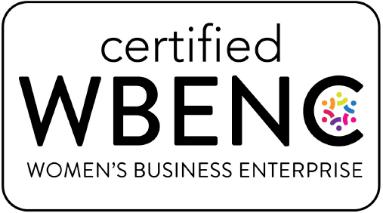Authored By:

Svitlana V. Anderson
Attorney
Related Posts:
Do Your Research Before You Choose Your Business Name and Brand:
How to Trademark Search
Why Trademark Search Is Important
Branding is an essential component of marketing your company’s products and services. Trademark protection ensures that your promotional efforts are not undermined by an infringement. But before you start using a trademark, you should conduct a search to ensure that the trademark you wish to implement has not already been used in a way that would subject you and or your business to liability for trademark infringement and to ensure that you could register the trademark federally or with a state.
Search Yourself
Our clients often ask if they can search their business names and trademarks themselves. The answer is yes and no. You could try searching yourself first so that you don’t spend money on a professional search that you could have avoided. Chances are, your first choice of a trademark could be already taken, and with little investment of your time, you can eliminate some obvious conflicts. You can search federally registered trademarks using the Trademark Electronic Search System (TESS) at the United States Patent and Trademark Office (USPTO) website. The TESS tool includes a database of all trademarks registered federally with USPTO and can be searched by name or keyword through a drop-down menu.
Searching Tips
Searching TESS is relatively simple, but there are a few critical guidelines to bear in mind. First, use the search function “Basic Word Mark” to search the literal elements of your trademark. Place the name of your trademark in the search field and choose “Combined Word Mark.” For example, a search for “Coca-Cola” would reveal any trademark identical to those words in the order listed. Note that the system automatically puts your search keys in parentheses, thus limiting your search to the words searched and, in the order listed. You should also search for variations of your proposed trademark—for instance, “CocaCola,” “Cola Coca,” and “Coca Cola,” as well as singular forms of the trademark or plural, if applicable.
Reviewing Search Results
What do you do if you find a registered or pending mark identical or almost identical to your mark? First, evaluate if that mark is used in association with similar or identical goods and/or services. Second, review whether that mark was filed as an intent to use or actual use application. If your analysis of the first criteria indicates similarity of the goods/services, you probably don’t want to use or apply to register that trademark. Analysis of the second inquiry is more complicated, and consulting an IP attorney is a good idea, especially if you are deciding to use a mark with the similar variations.
Limitation of Self-Search
As useful as the TESS search tool is, it does have important limits. While TESS is helpful with searches of literal elements of your trademark, a separate set of search skills is required to search for logos, designs, colors, sounds, and other combinations of trademarks. Also, although federally registered trademarks are included in the TESS database, searching TESS will not reveal trademarks that are not registered with the federal government, but which are registered with a state. TESS also would not have trademarks that are in use but not registered—such “common law” marks could also subject you to trademark infringement liability. For these reasons, searching TESS alone is not enough to get a good sense of your potential exposure to liability and chances of registrability of your mark.
Searching State Trademarks
Some trademarks are registered with a state government only. You might be able to search those with the secretary of state’s office of any particular state. Searching databases with state trademark registrations is time consuming, and many states do not provide free online searching tools.
Professional Search: Can I afford it?
Although professional trademark searches can be costly, they could pay off in the long run. These searches use specialized proprietary databases with access to federal, all states, and other specialized databases that could reveal other unregistered uses that you do not easily find on the internet. This sort of comprehensive search could help to minimize the risk that your proposed trademark will violate the Likelihood of Confusion legal standard. Under the Likelihood of Confusion standard, the courts consider whether one trademark is so similar to a previously-established trademark that consumers would likely be confused between the two. In such cases, the second trademark is judged to have infringed on the earlier trademark.
Why hire Peacock Law?
As you can see, a thorough trademark search requires considerable amount of time and effort. While it is possible to conduct TESS trademark search on your own, employing the services of an intellectual property attorney can help ensure that your search is thorough and includes state and common law results, while also relieving you of the heavy lifting involved. Peacock Law P.C. can guide you or your company through the entire trademark search process. Check out our website (https://peacocklaw.com/trademarks/) to learn more.


